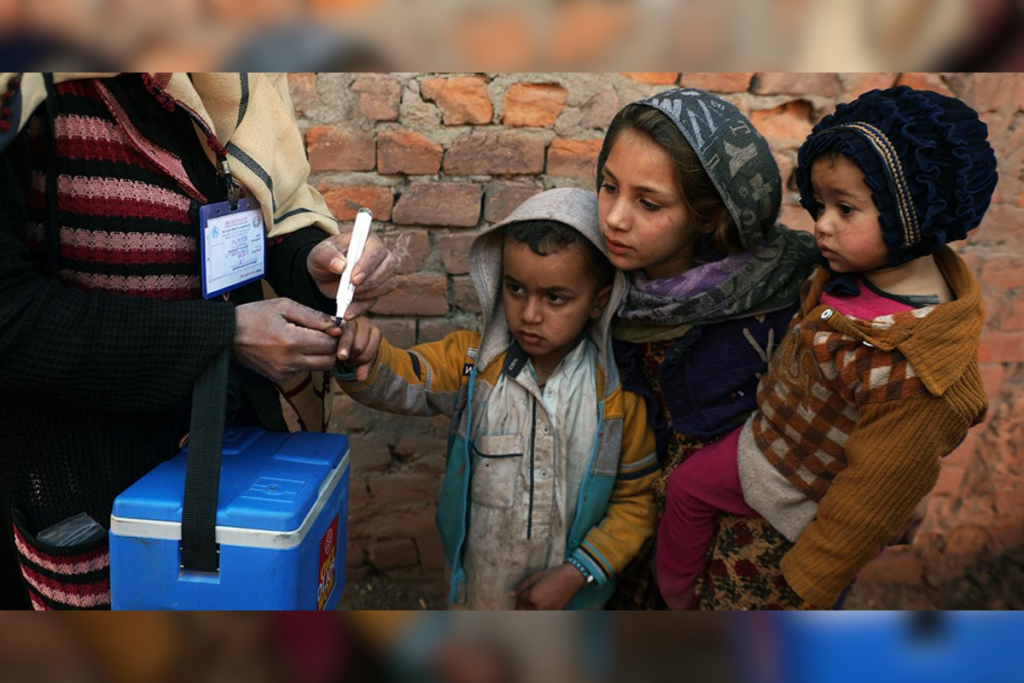
The ongoing conflict in Gaza has posed significant challenges to public health efforts, yet the World Health Organization (W.H.O.) recently announced that polio vaccination campaigns in the region have exceeded expectations. This is a remarkable feat given the complex and dangerous environment in which healthcare workers are operating. Polio, a highly infectious disease that can cause paralysis, reemerged in Gaza after years of absence due to deteriorating sanitary conditions and weakened healthcare infrastructure.
Polio Resurgence in Gaza
The reemergence of polio in Gaza after more than two decades is attributed to the lack of clean water, poor sanitation, and a weakened healthcare system. Decades of conflict and recent escalations have left much of the population, particularly children, vulnerable to outbreaks. Solid waste management has collapsed, and access to proper sanitation is almost nonexistent in many areas. This has created a breeding ground for infectious diseases like polio, which spreads through contaminated water and food sources.
Related Article: Gaza officials claim that an Israeli airstrike that targeted a tent camp for displaced people killed scores of people
Save the Children and other humanitarian organizations had long warned of the possibility of such an outbreak. In 2023, their predictions materialized when the virus was detected again in the region. Gaza’s healthcare system, already struggling under the strain of constant conflict, had little capacity to manage the outbreak, raising concerns about its potential to spread further.
Vaccination Campaign Success
Despite these challenges, the W.H.O., in partnership with local health authorities and international aid organizations, launched an aggressive polio vaccination campaign aimed at children under five, the group most at risk from the disease. According to the W.H.O., the goal of vaccinating nearly 700,000 children with two doses of the oral polio vaccine was ambitious but achievable. By the end of 2023, the campaign had surpassed its initial targets, even amidst frequent pauses in the vaccination drive due to airstrikes and restricted access to certain areas.
Healthcare workers operated under life-threatening conditions, often relying on short humanitarian pauses to access displaced populations and administer vaccines. In many cases, families had to make dangerous journeys to vaccination points, often unsure if they would be caught in the crossfire. The resilience of these families and the dedication of medical staff have been credited with the campaign’s success.
Challenges and Setbacks
While the vaccination campaign has been successful in terms of numbers, significant challenges remain. Many children have yet to receive the second dose of the vaccine, which is crucial for full immunity. The conflict has created numerous barriers to consistent healthcare delivery, with destroyed infrastructure, blocked roads, and constant threats to the safety of medical personnel. Malnutrition and a lack of access to clean water have further weakened the immune systems of many children, making the impact of the first dose less effective without the follow-up.
Related Article: Updates of State of the Union 2024: US will set up Gaza aid port – Says Biden
Another major issue is the fear among families about seeking medical help or vaccinations during active conflict. Many parents are hesitant to leave the safety of their homes, even to access life-saving vaccines for their children. Despite these difficulties, organizations such as Save the Children and the W.H.O. are doing their best to reach as many children as possible, often under extremely hazardous conditions.
Future of the Polio Fight in Gaza
Looking forward, the W.H.O. and local health authorities are committed to continuing the fight against polio in Gaza. However, they emphasize that a long-term solution requires more than just vaccination campaigns. Improvements in Gaza’s water, sanitation, and healthcare systems are critical to preventing future outbreaks. The W.H.O. has called for sustained international support to not only provide immediate relief but also to rebuild the region’s healthcare infrastructure. Without these improvements, Gaza will remain vulnerable to recurring outbreaks of polio and other preventable diseases.
Finally, while the success of the polio vaccination campaign in Gaza is a significant achievement, it underscores the broader public health crisis facing the region. Continued international support and a focus on improving basic infrastructure are essential to ensuring the health and well-being of Gaza’s children in the long term. The resilience of healthcare workers and the families they serve remains a beacon of hope in an otherwise dire situation.
This article highlights both the remarkable progress and the ongoing struggles in the fight against polio in Gaza, reflecting the broader humanitarian crisis in the region. It demonstrates how global health efforts, even in the most challenging circumstances, can make a difference with adequate support and cooperation (Truthout).
